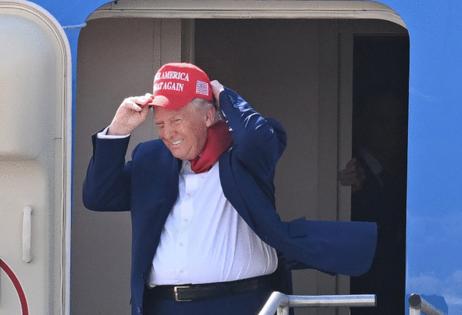Trump signs order to prevent his auto tariffs from stacking on top of each other
Published in Business News
President Donald Trump signed an executive order easing the impact of his auto tariffs, yielding to weeks of intense lobbying from automakers, parts suppliers and car dealers who warned excessive levies could push up car prices, triggering plant shutdowns and job losses.
Under the executive order, signed aboard Air Force One, imported automobiles were given a reprieve from separate tariffs on aluminum and steel, an effort to prevent multiple levies from piling on top of each other.
“I have now determined that, to the extent these tariffs apply to the same article, these tariffs should not all have a cumulative effect (or “stack” on top of one another) because the rate of duty resulting from such stacking exceeds what is necessary to achieve the intended policy goal,” Trump said in the order.
Additionally, administration officials say Trump will change 25% tariffs on auto parts planned to start on May 3 by allowing carmakers who produce and sell completed automobiles in the US to claim an offset worth up to 3.75% of the value of an American-made vehicle, a senior Commerce Department official said.
The offset will reduce in one year to as much as 2.5% of the car’s value, and then be eliminated the following year, a bid to motivate domestic manufacturing. The offset will be available for cars that were produced after April 3.
Trump softened his stance ahead of a trip to Michigan, where he plans to mark the first 100 days of his second term in the White House with a speech in Macomb County, a conservative suburb of Detroit that’s home to many of the blue-collar workers the president says his tariffs are meant to help.
While Trump’s latest tweaks will lighten the cost burden on car manufacturers, suppliers and dealers, it’s too early to tell how much financial relief they really bring. The industry is still grappling with a 25% duty on imported vehicles that threatens to significantly raise industry costs and pressure supply chains.
The industry had also been awaiting details from the administration on how to calculate tariff costs for auto parts, sowing confusion and forcing some plants to pause production as car companies game out different scenarios and spar with suppliers over who will shoulder the bulk of the new costs.
That instability was on display earlier Tuesday when General Motors Co. withdrew earnings guidance for the year and postponed a call with investors to give executives time to digest the new rules and its impact on their financial outlook.
Carmakers have so far been holding prices steady as they try to calm worries that Trump’s 25% tariff on imported cars will drive up costs by thousands of dollars. Fear that those levies could push up sticker prices drove a surge in sales in the first quarter.
©2025 Bloomberg L.P. Visit bloomberg.com. Distributed by Tribune Content Agency, LLC.












Comments